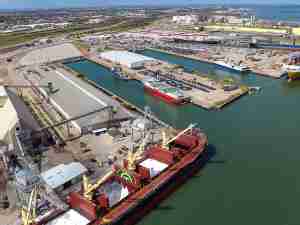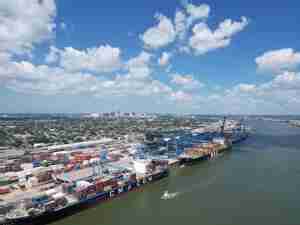A back-of-the-envelope calculation shows there’s about $9.6 billion worth of daily marine traffic halted by the massive container vessel that lodged in the Suez Canal earlier this week, blocking transit in both directions.
The figure is based off an assessment by Lloyd’s List that suggests westbound traffic is worth around $5.1 billion a day and eastbound traffic approximately $4.5 billion. The industry journal concedes that these are “rough calculations,” however. There are about 185 vessels waiting to transit the waterway, data compiled by Bloomberg show, while Lloyd’s estimated 165.
So far efforts by tugs and diggers to dislodge the Ever Given—the 400-meter long vessel that became wedged in the canal on Tuesday—have failed and work to re-float the ship has been suspended until Thursday morning in Egypt, shipping agent Inchcape said, citing the Suez Canal Authority.
AP Moller-Maersk A/S, Mediterranean Shipping Co., Ocean Network Express Pte and Yang Ming Marine Transport Corp. own vessels in the canal, according to S&P Global Market Intelligence unit Panjiva, which cited VesselFinder data. About 50 ships per day use the waterway, and in 2019 containers accounted for around 53% of the transiting tonnage, it said
Approximately 13 million barrels of crude on 10 tankers could be affected by the disruption, according to Vortexa Senior Freight Analyst Arthur Richier. There are also nine vessels carrying clean petroleum products, along with biodiesel, sitting outside Suez, awaiting the resumption of northbound convoys, he said.
Just how long it takes to move the ship and clear the gridlock will dictate further impacts on markets. About 300 vessels globally are either stuck in the Suez Canal, waiting to transit the waterway or signaling it as their next destination, according to shipping data compiled by Bloomberg.
As of Wednesday, the queue included 40 bulk carriers hauling commodities ranging from crops to dry goods like cement as well as vessels carrying oil, fuel and chemicals, Bloomberg data show. There were also eight ships carrying livestock, more than 30 general cargo vessels and a water tanker.










